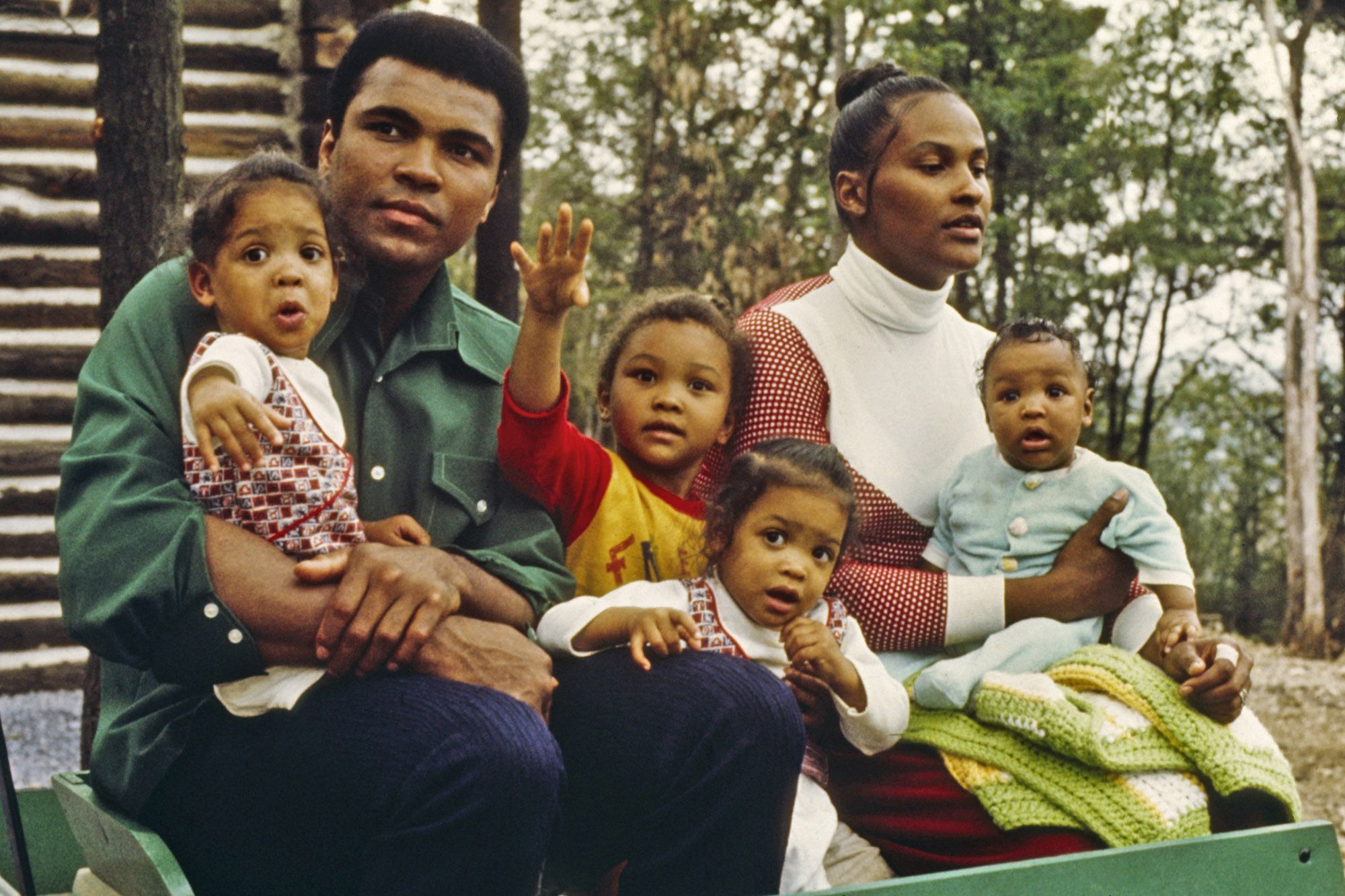Ken Burns keeps immersing himself in large lives, filled with contrasts.
There was Thomas Jefferson, the champion of freedom, who owned slaves. And Ernest Hemingway, the macho man with a fragile ego. And now Muhammad Ali (shown here) is profiled in a four-night film, Sunday through Wednesday (Sept. 19-22) on PBS.
With the hyper speed of his boxing and his tongue, Ali could be brutal. At other times?
“He was so sweet and cuddly,” Rasheda Ali, one of his nine children, told the Television Critics Association. “Daddy was very affectionate. I think all of us are now, because of him.”
Ali also became outspoken about Vietnam, race and more. Sometimes vilified, he grew to global fame. “It’s not a bad thing to die the most beloved person on your planet,” Burns said. “And he did.”
He was also blessed with something else – a physical beauty that topped even Hemingway.
“He is an extraordinary human speciment,” Burns said of early Ali. “He is gorgeous to look at; he’s amazing to listen to. He has a compelling personality and a sense of himself.”
Still, people weren’t sure what would become of him.
Born in 1942 in a segregated Louisville, Ali (then named Cassius Clay) had a father who painted signs and billboards and a mother who was a devout Baptist. “She was just one of the sweetest ladies that you’d ever meet,” Rasheda Ali recalled. “My dad’s sweet side came from my grandmother, because there wasn’t a mean bone in her body.”
He struggled in school, hindered by dyslexia and possibly attention deficit disorder. Mostly, he resorted to humor; once, he brought a purse to school and wore lipstick. That was typical, Burns said, of “the audaciousness of being himself. (He once said,) ‘I have 182 amateur fights, I have 22 professional fights and I am pretty as a girl.’”
There was also a serious side to him. At 13, Ali was deeply disturbed by the murder of 14-year-old Emmett Till, in Mississippi.
A year earlier, at 12, he began boxing lessons. He soon had his own, eccentric style.
“Great fighters fight from their personality …. What Muhammad did in the ring – you can’t teach that,” said Michael Bentt, an ex-boxer who was a prime consultant for the film.
The young Clay won championships and, at 18, won the Olympic gold medal as a light heavyweight. Four years later, his 6-foot-3 frame now beefed up, he became the heavyweight world champion.
Ali would be banned from boxing when he refused to enter the Army during the Vietnam era. He had four years without a fight, but later won the title back.
He remained a divisive force, but also drew waves of praise. In 1996, Ali was chosen to light the Olympic flame in Atlanta; three years later, ESPN put him at No. 3 (trailing only Michael Jordan and Babe Ruth) among the century’s greatest athletes.
But controversies followed him, including his draft-refusal. his four marriages, his infidelities and his verbal cruelty. Late in life, battered by Parkinson’s disease, Ali apologized for calling Joe Frazier an Uncle Tom.
“I’m not giving him a pass for his philandering,” Rasheda Ali said. But “I know my dad’s heart was so pure and genuine, even though he was doing things that weren’t really good for us as a family.”
It’s the ultimate contrast, Burns said. “That somebody in a sport so brutal could have that kind of heart … makes you realize at the end of the day that he’s a prophet of love.”
